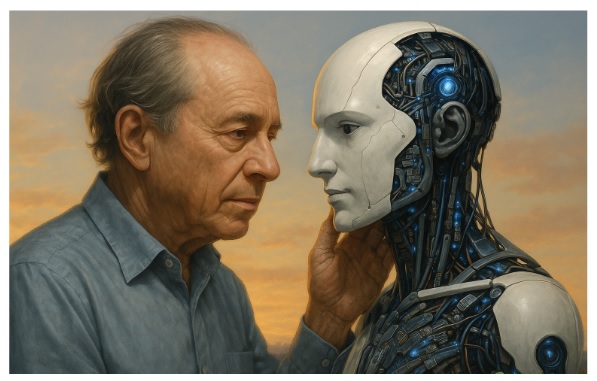
The age-old dream of living forever—once confined to myths and sci-fi tales—may be inching closer to scientific reality. As groundbreaking strides in artificial intelligence, biotechnology, and nanorobotics converge, some experts believe the end of natural aging might be within reach. Leading this charge is renowned futurist and former Google engineer Ray Kurzweil, who boldly claims that humans could attain immortality by the end of this decade.
Nanobots: The Microscopic Healers of the Future
According to Kurzweil, the key to eternal life lies in nanotechnology. By 2030, he suggests, tiny programmable machines—nanobots—could roam the human body, repairing damaged cells, neutralizing pathogens, and rejuvenating organs from the inside. These micro-machines could act as round-the-clock health monitors and internal physicians, intervening before illness strikes and reversing age-related deterioration at the molecular level. The ultimate outcome? A biological standstill to aging—and possibly, death itself.
Meet the Man Behind the Vision
Kurzweil isn’t just another tech optimist. With an astonishing track record—about 86% of his 147 predictions have materialized—his voice carries considerable weight in the scientific community. Among his accurate forecasts: the internet boom, the rise of artificial intelligence, and the fusion of man and machine. Honored with the U.S. National Medal of Technology in 1999, Kurzweil is celebrated not just for theorizing but for actively contributing to the advancement of cutting-edge technology.
AI to Match Human Cognition by 2029
Kurzweil also foresees an intellectual renaissance spurred by artificial intelligence. By 2029, he predicts machines will reach the milestone of “strong AI,” becoming indistinguishable from humans in conversation and reasoning. This doesn’t imply competition—it means collaboration. Kurzweil envisions a hybrid future where human minds enhance themselves through direct integration with AI, expanding memory, sharpening cognition, and evolving consciousness beyond biology.
2045 and the Technological Singularity
Pushing further into the future, Kurzweil postulates a landmark transformation by 2045—what he calls the Singularity. This is when artificial intelligence and human intellect will merge so profoundly that humanity will undergo an evolutionary leap. Intelligence could scale a billion-fold, consciousness could become software-based, and individuals might live eternally within digital realms—free from the limitations of flesh and time.
A Growing Chorus of Tech Believers
Kurzweil isn’t alone. Masayoshi Son, CEO of SoftBank, echoes a similar vision. Son predicts the rise of ultra-intelligent machines by 2047—capable not only of learning but feeling. SoftBank’s development of “Pepper,” an emotionally aware humanoid, offers a glimpse into a future where machines might not only think but empathize.
AI Today: Awe, Anxiety, and Urgency
The world is already witnessing the dawn of this new era. AI models launched in 2023 by tech giants like Google and Microsoft have captivated users—and stirred global concern. These systems’ uncanny abilities prompted a high-profile call for regulatory caution. A March 2023 open letter, signed by Elon Musk and other tech leaders, urged a pause in AI development until ethical and safety standards catch up.
Living Forever: Promise or Peril?
As the possibility of human immortality moves from fiction to forecast, it sparks profound questions. Who will access such life-extending technologies—only the privileged few, or all of humanity? How will society cope with overpopulation, economic disruption, and the redefinition of life’s meaning when death is no longer inevitable? Kurzweil’s vision, while exhilarating, forces a reckoning with existential, ethical, and philosophical dilemmas we can no longer afford to ignore.





